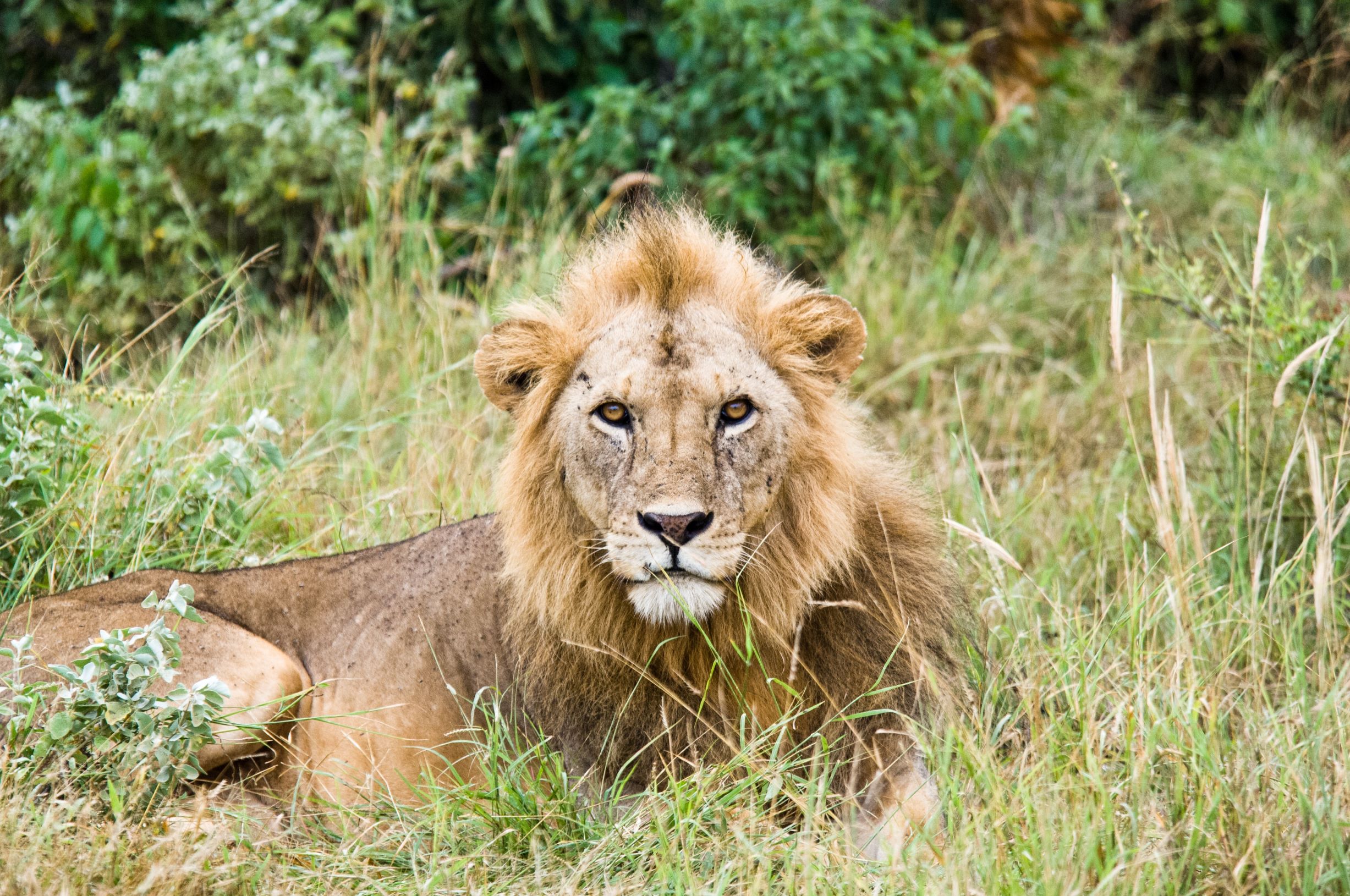
Could you remain calm despite having your full head inside a lion’s mouth, while feeling its teeth around your neck, and knowing that you are completely powerless? Could you feel safe while sitting alone in a cave and feeling the full weight of a lion’s body on yours with no means to defend yourself or escape the situation?
Yes, for Fred Donaldson, this was in fact possible! Fred shares his remarkable experiences and lessons in a fascinating interview, “There’s Nothing to be Afraid of”, at the Embodiment Conference (aired between October 14-25, 2020).
During his last 40 years, Fred Donaldson has spent most of his time interacting with, playing with, and learning from wild animals (including lions, tigers, grizzly bears and wolves) and children of different cultures (including street kids in Mexico). All this time, he has been driven by a deep curiosity and fascination of the way children and animal play and communicate. What he discovered was a universal, inherent, intuitive, and non-verbal form of communication, which was enabled by a natural ability to rest in the present moment. Yet, this form of communication seems to weaken as we grow up and become rational adults of the modern world.
Yet, over time, Fred learned that it is actually possible to re-learn how to feel present, grounded, and safe – even in extreme situations of apparent danger. For example, he was able to stay calm and present even as he came close up with a wild grizzly bear (who put its enormous head against Fred’s, rested his paw on his shoulder, and pushed him to fall on the ground). Or when he walked into a classroom to bring out a young boy (who was holding a knife), by turning his back towards the boy and silently inviting him to jump up onto his back, so that they could both walk out safely and disarm the situation.
Through his unique experiences, Fred also realized that, “the more connected you are [to the situation, to others, and to the mystery of life], the safer you are. And the safer you are, the safer the other person is.” He also learned to “give 100% of love and receive whatever comes.” In other words, to give love unconditionally without demanding or expecting anything in return. Also, he learned what it means to focus on the now (no future and no past) and to trust the present moment to 100%.
Also, by interacting with children and wild animals, Fred recognized what he calls “a mystery of life” as well as an inherent goodness in all life forms:
“[It felt as if God, the children, and all animals had come together to] show me that my view of the world is way too small… and [to] give me situations in which I have no taught skill to handle. And yet I [discovered that I had] come with the skill! And I have no idea where it comes from. And to feel comfortable, to feel at ease with that mystery and the beauty of that life. It is just an amazing experience… I call it a coherence among life, that when it’s there, it’s communicated. And you know, not just young people, but among all life forms. Hm, that is safety. That’s what it means to have nothing to be afraid of.”
“And the reality is, in all the years of doing this, the kids and animals have been incredibly kind to me. They can be very severe and very strict when I make mistakes. But there’s no blame. There’s no fault. There’s no revenge and they show me a kind of love that is just so powerful and so real. It’s tangible, you can actually feel it like you’re embraced in it. That’s amazing. It just surrounds you.” — “I become this, as my language. Not meant to be a word that everyone has to use, but I become a ‘face of God’ and I play with ‘the face of God’. I’m not playing with a grizzly or a lion or a child with autism or a gang member. I’m playing with the face of God. And it’s the face of God presence. That’s the magic…. That’s where safety is. And it’s nothing to be afraid of.” (Fred Donaldson, Embodiment Conference, 2020)
In other words, when Fred recognized the face of God in the other person (or in the wild animal), he realized that there was nothing to be afraid of, nothing to fear. There was only love – a powerful and tangible love. He could rest in this full embrace, knowing he was completely safe.
Fred also emphasizes the value of dropping our self-defense and our identifications or roles:
“I’ve learned over all these years that self-defense… I don’t want to [do that]. It’s not about defending myself ever… Love is a much stronger force or energy than fear. So… I call it self-disappearance, so that the categories that might be visible or felt by someone else, that makes them afraid, disappear. I don’t appear as a human or a white guy or therapist or any of those other categories that allow us to get hurt. And that was 100% taught to me by kids and animals without talking.” – “We can choose to play and die, rather than live and not play. It is about playing fully, not waiting. This is it!” — “And that’s what it is, every time, every child, every animal, every human. When we play, it is God’s gift to each of us, that we give back and forth.” (Fred Donaldson, Embodiment Conference, 2020)
How can we live in this state of total trust and surrendering? Fred shares some valuable everyday practices:
You can start by “feeling the beauty every day. Find something. If you don’t touch it with your hand, touch it with your eyes. Feel the beauty in us, in the world around us, in the rain, where you are. And, in that feeling, in the simple feeling of beauty, there is love.”—“Touch the world around you.” —” Just touching it makes us connected.”— “Think of touching an infant, think of touching a butterfly… What does it feel like for the butterfly to touch you? That is the skill you need.” — So, “Don’t grab the world, embrace it.” (Fred Donaldson, Embodiment Conference, 2020)
To create mutual trust and safety in our interactions with other people (and animals), the lessons of Fred may be summarized in the following bullets:
- Be silent initially as you approach another person (or animal), as opposed to using words.
- Be grounded in your body and become aware of the body language, both yours and the others.
- Trust your body’s intelligence, as opposed to trusting your brain and rational mind.
- Lower your guard using your body posture and movements, so as to not give a threatening impression, which would be sensed by the other.
- Express trust in the other person with your body language, as opposed to showing fear and distrust.
- Sense the other person energetically, by tuning into the other person’s energy.
- Feel the other person emotionally, while choosing to feel only love in return.
- Trust the inherent good will and innocence of the other person.
- Feel and express only unconditional love for the other person.
- Have clarity of mind, by knowing your intentions and being clear about your actions. (When we feel clarity, there is less confusion and fear in the other person.)
For more information about Fred Donaldson’s work, see: International Foundation for Original Play. Photo by Florian Berger (Unsplash.com).



